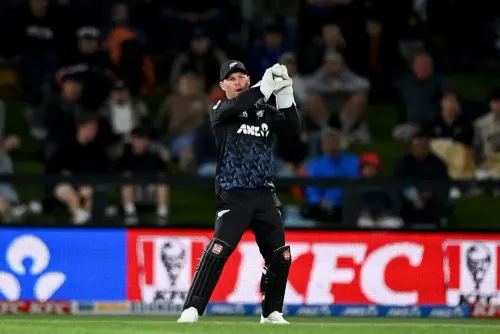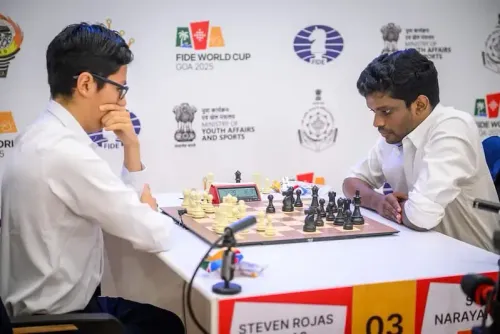Ian Chappell Critiques ICC's Role in Cricket Governance

Synopsis
Key Takeaways
- ICC acts like an event management organization.
- Need for a two-tier Test system in cricket.
- Financially stable nations dominate scheduling.
- Criteria for Test status should be clearly defined.
- Current financial divisions among nations need reevaluation.
New Delhi, Jan 26 (NationPress) Former Australia captain Ian Chappell asserts that the International Cricket Council (ICC) operates more like an event management firm rather than governing cricket itself. He emphasized the necessity for a two-tier system in Test cricket, but current efforts are concentrated on addressing other urgent issues related to the format.
“The ICC is often seen as an event management organization. They could have added 'and not a very good one.' Regarding the proposed two-tier Test system, former West Indies pace bowler Michael Holding commented: 'For all its flaws, at least FIFA actually manages soccer. The ICC must take charge of cricket.'
“This creates a significant dilemma. The ICC does not oversee cricket, and unless there’s a substantial shift in priorities, the financially advantageous nations will continue to dominate the scheduling to their benefit,” Chappell wrote in his ESPNCricinfo column on Sunday.
Discussing the two-tier Test system further, Chappell stated, “A two-tier Test system should have been established long ago. In truth, only a select number of teams can sustain competition in five-day matches over time.
“The West Indies have earned the right to financial support due to their crowd-drawing ability, and it is outrageous that they have been allowed to stagnate. A system with promotion and relegation is achievable, but certain criteria must be met before a team gains Test status.
“These criteria should include: Do they possess a sustainable first-class competition? Do they have proper facilities for hosting five-day matches? Are these venues equipped with sufficient amenities? Are they financially viable?”
Considering all of this, Chappell argued that Iceland and Afghanistan should not be granted Test status. “If a team fulfills those criteria - and maintains a high level of performance over several years - then promotion to Test status would be justified. However, many recently appointed Test nations fail to meet even minimal standards.
“For example, can Afghanistan host a Test series in their war-torn homeland? Does Ireland possess a realistic number of grounds suitable for Test matches? Even disregarding the Taliban’s appalling treatment of women, the answer to those questions is a resounding no. So why do they have Test status? Because they provide the ICC with valuable votes on crucial matters in return for it.
Chappell also highlighted the unresolved issue of how financial resources are shared among nations. “The big three - India, Australia, and England - despite being the richest cricket nations, claim a significant portion of the funds divided among cricketing bodies, while pushing for an even larger share.
“India’s substantial influence in the ICC correlates directly with their contribution, which accounts for about 70% of cricket's revenue. This is a complex issue for which cricket has yet to find a viable resolution. Cultivating a player who excels in Test cricket necessitates a robust four-day competition.
“Running a four-day competition is extremely costly, and thus, very few nations beyond the big three can shoulder this burden. This is one reason why T20 cricket is thriving. Implementing a successful T20 league enhances a cricket body’s financial capacity.
“This reality, combined with the greater acceptability of a successful T20 league over losing money on a first-class schedule, dominates the considerations of most cricket administrators. A cricketing governance by a competent ICC is a distant dream. Therefore, the expanding T20 calendar and the current scheduling chaos that plagues the sport are now prevalent,” Chappell concluded.









